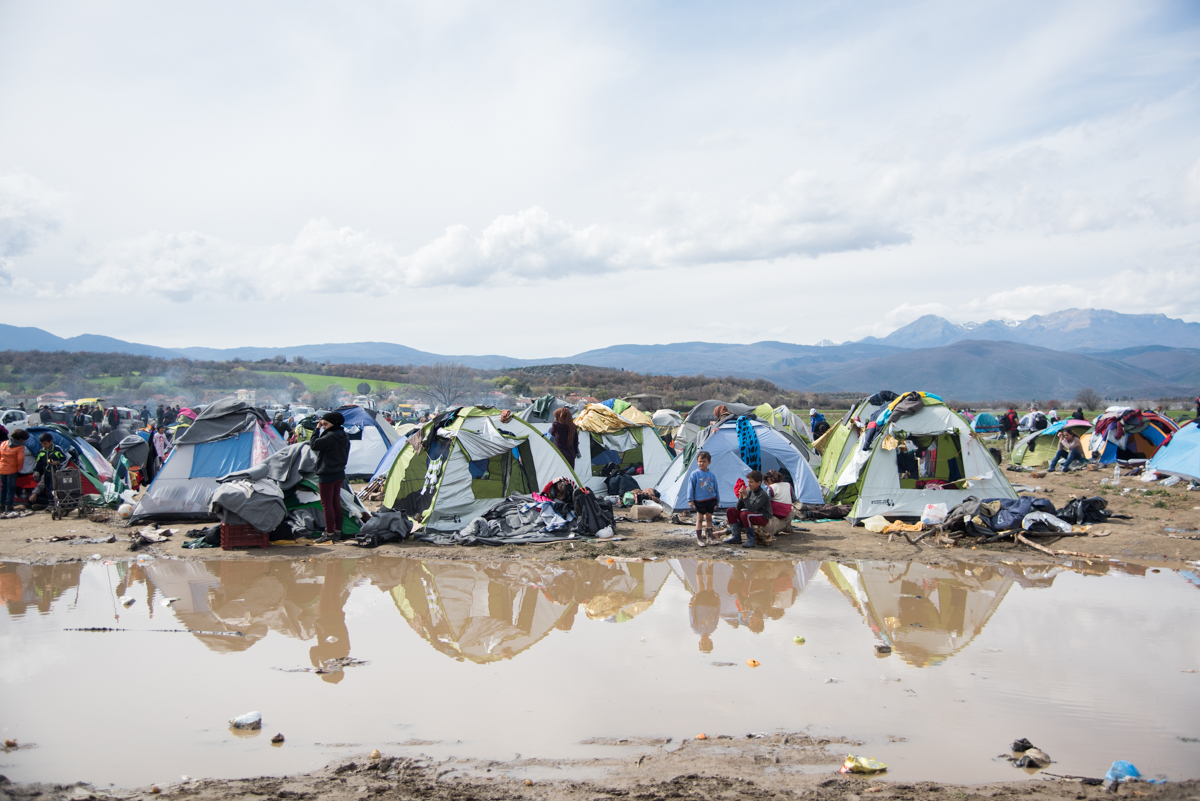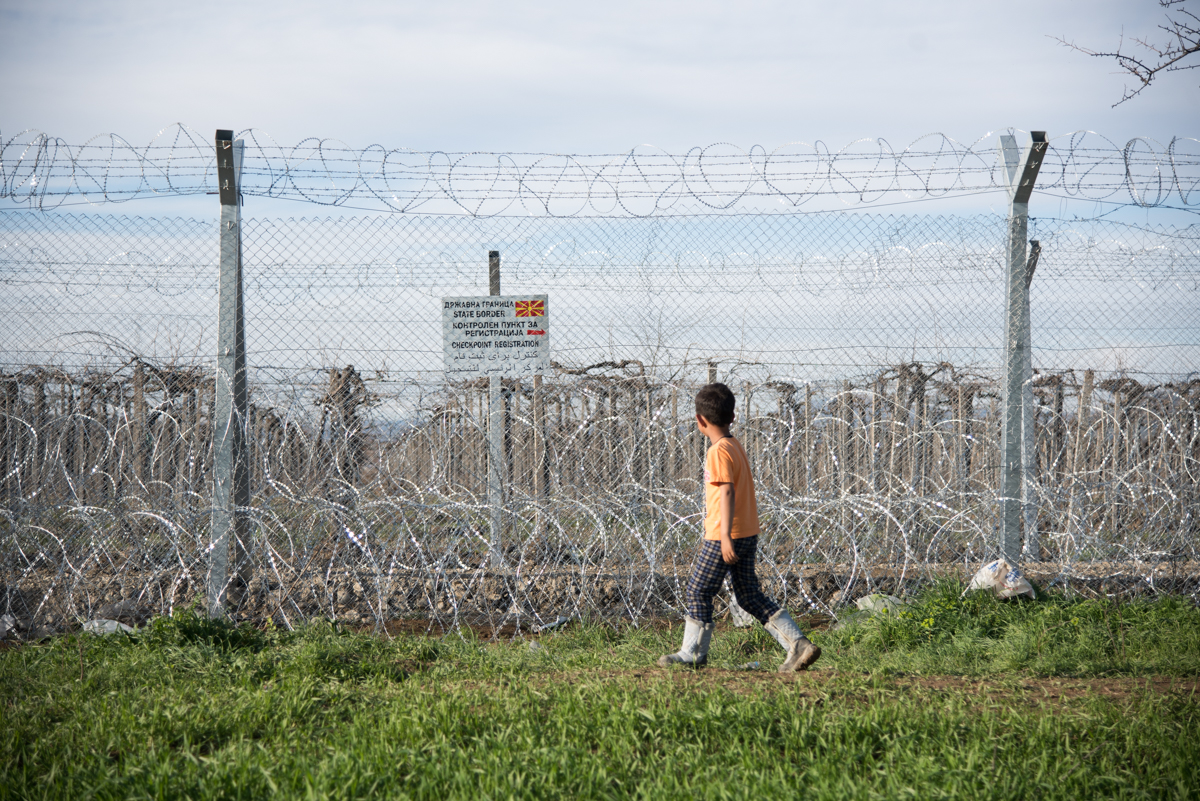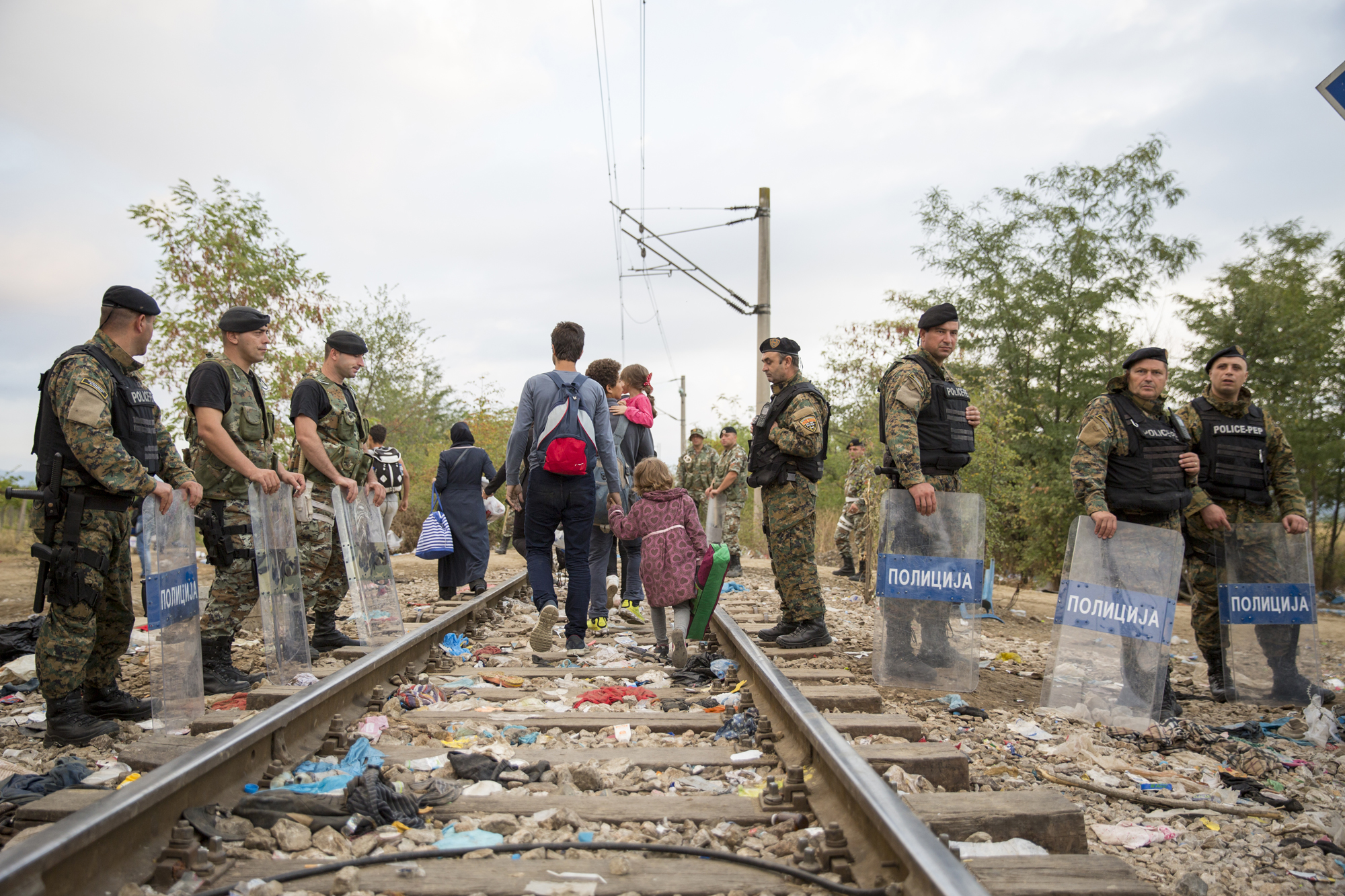
By Baylen Campbell and Katie Bellamy Mitchell, Identity and Discrimination Unit Interns
Despite the fact that the global community is facing the worst refugee crisis since WWII, the European Union (EU) has undertaken aggressive efforts to divert or even block some of the safest pathways. Over 19.5 million people–of the over 60 million displaced people globally– have so far been recognized as refugees, meaning they are people fleeing their countries because of a well-founded fear of persecution from which the government cannot or will not protect them.
Yet rather than providing protection to asylum-seekers and refugees, countries throughout the EU have shut down their borders and forced them to traverse more dangerous routes. Amnesty has reported on the increased securitization of borders along the Eastern Migration Corridor through Bulgaria, Macedonia, Greece, and up through the Balkan region into Slovenia and Hungary. As the first entry points into the EU for refugees arriving by land or boat, these countries are required to handle their registration and asylum requests, not attempt to make it more difficult.
While pre-existing economic crisis has further compromised these countries’ abilities to process requests, the response has been on border security rather than fixing the system. Consider Hungary, which set aside 27.5 million Euros for the reception and processing of asylum requests, but spent 98 million Euros erecting a 175 kilometer-long, two-layered fence along its border with Serbia. Earlier this year it also closed its border with Croatia with a razor-wire fence.

The “Fortress Europe” approach is ineffective, costly and irresponsible,. As a result of this and the EU’s immigration policies, refugees are attempting to enter the EU with aims of avoiding the authorities in border countries (where resources and funding are limited) in hopes of reaching Germany or Scandinavia where their asylum requests can be processed in a more timely manner. What’s more, it leaves vulnerable refugee populations open to human trafficking and exploitation, directly threatening the survival of those fleeing conflict.
It is prohibited by international law to return refugees and asylum-seekers to countries where they are at risk of persecution — even indirectly, as when one country avoids responsibility and forcibly sends refugees to another country, which can then send them to another country, and so on. Under international law, states are responsible for examining asylum claims made in their territory or jurisdiction. The deportation of a group of people without considering each case individually– “collective expulsion”– is also prohibited. Some states have done just that, establishing “transit zones” at train and bus stations where refugees are unable to move forward into the EU, and unwilling to return to their country of origin out of fear. Shuffling people around in a bureaucratic limbo is not a solution, and it violates the law.
Countries along the Eastern migration corridor argue that they are protecting the Schengen Zone, which allows citizens of EU member states to move freely throughout the EU. Closing off of the Eastern corridor only diverts refugees, forcing them to seek passage through the Central corridor in Italy. Migrants are forced to board dilapidated boats, or stow away in cargo ships, hoping to make landfall on Italian shores. This is a journey that many do not survive. Amnesty International is concerned that, in the name of protecting the Schengen Area, the EU and its member states are prioritizing potential security concerns over upholding and protecting human rights.
At a recent US congressional briefing, the Hungarian Ambassador to the United States, Réka Szemerkényi, called for European proposals and a European solution to the refugee crisis — a reasonable request given that Hungarian institutions continue to be underfunded and unable to manage migratory inflows. However, Ambassador Szemerkényi also endorsed buckling down on the ‘collective security’ approach, in keeping with the Hungarian Government’s vote not to improve upon or add additional reception facilities. The Hungarian government also passed recently The Police Act and The Act on National Defence, which allow the police to intervene in any “crisis” involving migrants, and authorizes them to use rubber bullets, tear gas grenades, and pyrotechnical devices.

These measures are not in the interest of promoting safe passage for those who desperately need it, rather they encourage violence and justify the xenophobic rhetoric surrounding the issue within the country. While security concerns must be met, ethical and legal obligations to protect the human right to asylum cannot be skirted.
The solutions are clear. First points of entry (Hungary, Italy, Greece, etc.) must open safe routes of passage across their borders. The EU as a whole must prioritize the protection of life, combat xenophobia, and allow refugees to resettle. Specifically, Amnesty recommends that EU member states increase resettlement quotas and allow for the transfer of asylum requests outside first point of entry countries.
Protecting refugees is not somebody else’s problem. People are dying while governments spend billions on border control rather than addressing their human rights obligations.
After WWII, the international community agreed to protect refugees though the 1951 Refugee Convention and UN Agencies like the UNHCR. European leaders, including Hungarian PM Orban, need to reassess their policy decisions, and start holding themselves accountable for their legal obligation to protect — rather than harm — vulnerable refugees.
Putting aside that blocking refugees is creating more dangerous routes for them to take, I totally agree
These pictures are a little hard to sustain but they make a point
– lefoodist